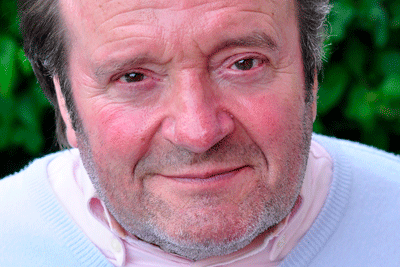27 March 2024
By Kathryn Smith, SCIE Chief Executive Officer
‘Kate Garraway: Derek’s Story’ was a powerful and heart-wrenching watch. Chronicling the last year of her husband’s life, Kate Garraway’s latest documentary did not flinch from showing the emotional and physical toll on unpaid carers.
Social care can be life-changing for millions of people. As Kate showed in her previous documentaries, the adaptations she put in place at home and the package of care for her husband, enabled him to live comfortably and surrounded by his family.
As Kate herself said so eloquently on The One Show shortly before her documentary aired, “The skill of a carer, the skill of that type of care, is just as life-saving and as brilliant as the work of a surgeon…”
But despite a workforce dedicated to helping people live as well as possible, the social care system is far too difficult to access, costly and of varying quality. It is complicated to navigate and unlike the NHS, which remains free at the point of use for everyone, social care is means tested; many people will need to pay all, or part of the costs associated with the care they or their loved one needs. This cost can quickly become prohibitive for many, leaving the burden of care firmly on the shoulders of unpaid family members.

I was interviewed by Kate during the process of making her documentaries and she told me that the cost of her late husband’s basic care needs was nearly £4,000 per week. Kate earns a good salary, yet how can she, let alone anyone else, afford that week in, week out for who knows how many months or years?
The social care sector needs a shake-up. We have an amazing workforce, but they are underpaid and overstretched. We rely heavily on unpaid carers, but sadly, they often do not get the recognition or support they deserve. It’s easy to forget that many will also be working full- or part-time to earn the money needed for some form of professional care for their loved one. They may also, like Kate, be raising children. It’s an exhausting and impossible task.
I am thankful, at least, that the Government’s Accelerating Reform Fund (ARF) – an initiative to encourage and grow innovation within the social care sector, for which SCIE is providing hands-on support – is recognising the crucial need to transform adult social care and provide much-needed support to unpaid carers.
Of the 122 projects registered across all 42 integrated care systems (ICS) for ARF support, about 7 in 10 have an element focusing on unpaid carers. This is at least one project within each of the 149 local authorities in England that has received funding. These include:
- A project in Coventry and Warwickshire to expand a digital self-help tool that will enable carers to identify local support and access bespoke information to support their own wellbeing
- Connecting hospitality, tourism and leisure businesses with unpaid carers in West Yorkshire so they can donate holidays and experiences to carers as a way to recognise their invaluable contribution to society
- Scaling up approaches for identifying unpaid carers in south-west London, such as through hospital discharge programmes, and referring them to carers networks
I am excited by the scope and potential promise of each project funded by the ARF so far. At SCIE, we are working alongside all local authorities involved to share knowledge, insights and best practice so that we develop these projects and learn how to successfully to scale them up to a national level.
Collaboration and innovation are key to changing the future of social care, and I hope that this is a first step to easing the financial, physical and emotional burden that so many unpaid carers experience as they do their best to care for the people they love.



